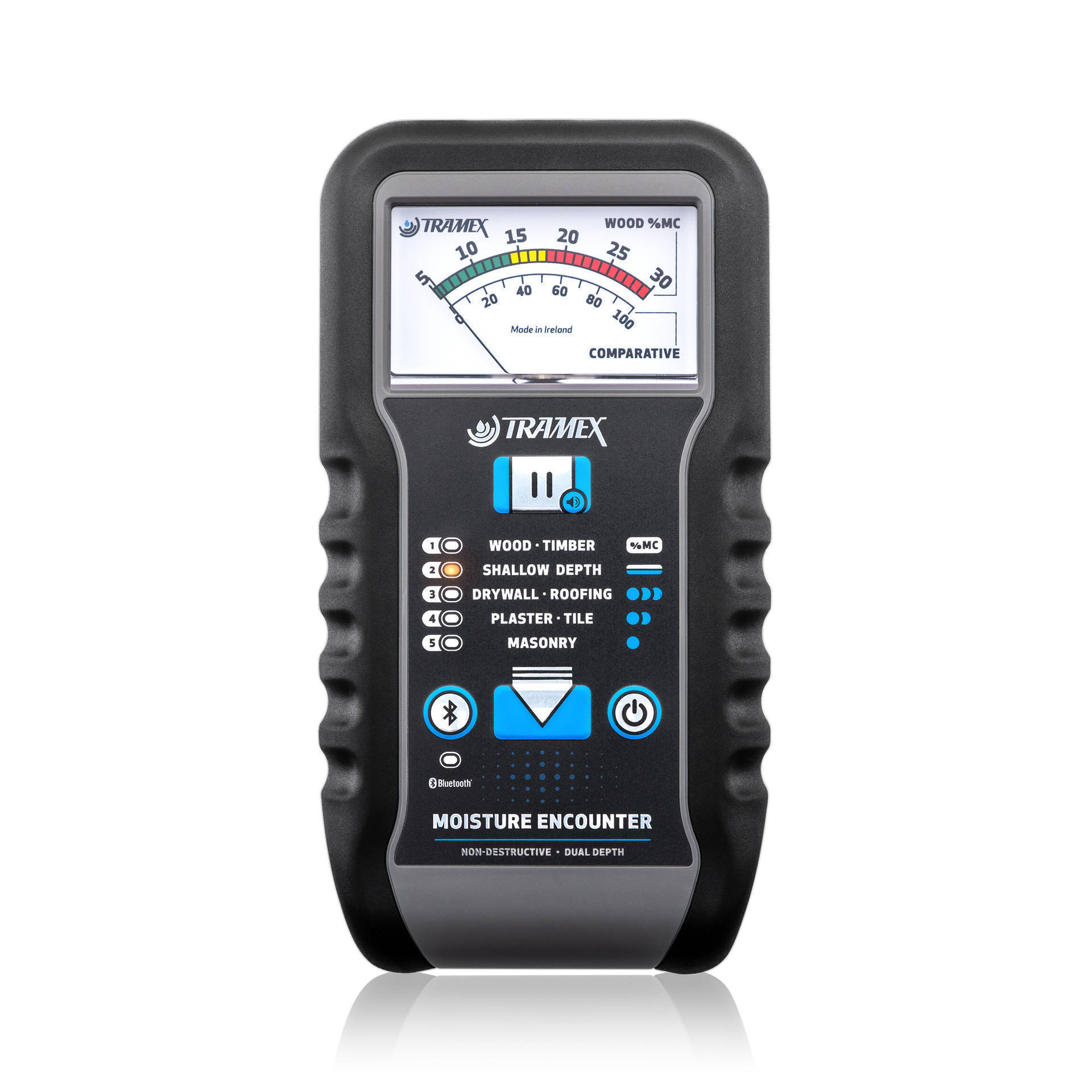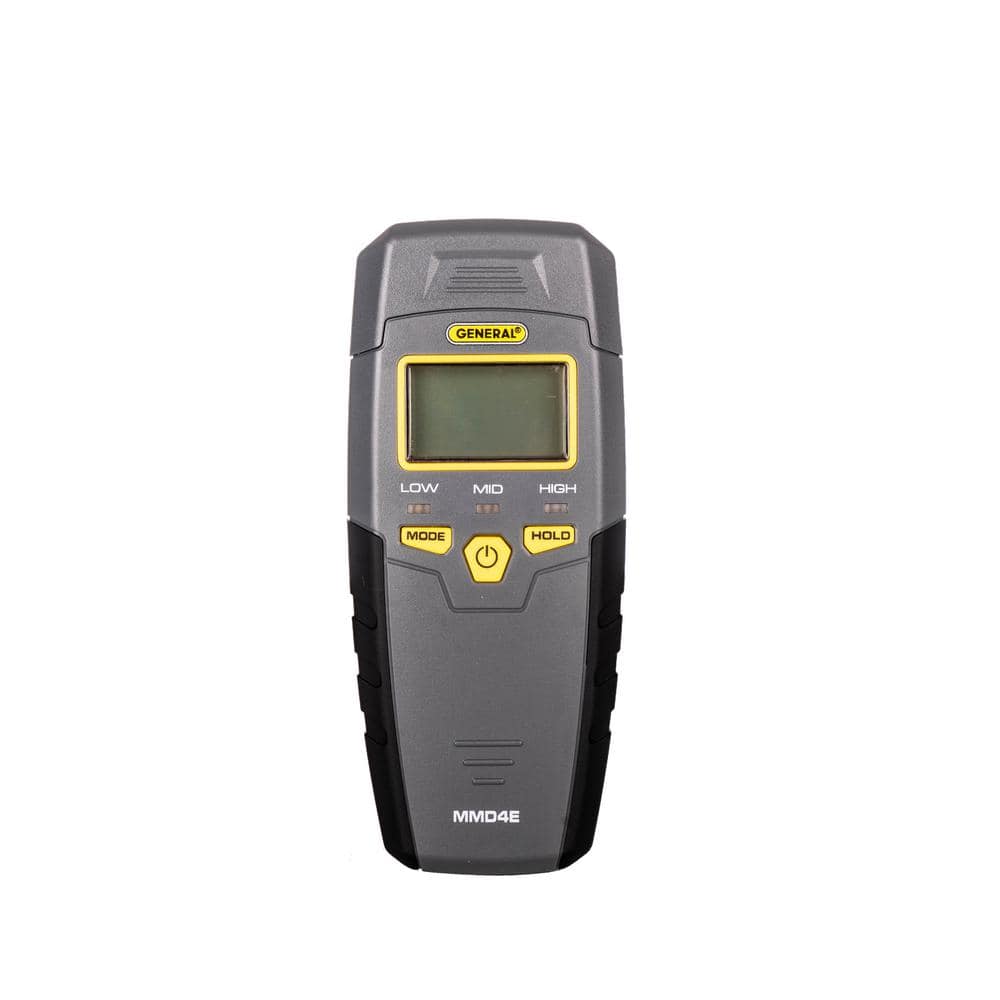The Ultimate Guide to Selecting the Right Moisture Meter for Your Demands
The Ultimate Guide to Selecting the Right Moisture Meter for Your Demands
Blog Article
The Ultimate Overview to Moisture Meters: A Comprehensive Introduction and Exactly How They Can Save You Money
In the world of structure upkeep, building, and numerous sectors, the relevance of properly determining dampness degrees can not be overemphasized. Moisture meters function as essential tools in detecting and keeping an eye on moisture content in materials, aiding in protecting against pricey problems and ensuring the quality of products. Understanding the nuances of various kinds of wetness meters, their applications, and the prospective cost-saving benefits they supply can be a game-changer for experts and services alike. Uncovering how these tools can not only streamline processes yet likewise add to monetary savings is a journey worth embarking on.
Kinds of Moisture Meters
Various sorts of dampness meters are available for various applications in different markets. One usual kind is the pin-type wetness meter, which gauges the electric resistance in between two pins put right into a material. This type appropriates for wood, drywall, and other structure materials. Pinless wetness meters, on the other hand, use electro-magnetic sensor plates to check a larger area without creating damage to the material's surface. These meters are suitable for rapidly analyzing dampness degrees in huge areas such as floorings and wall surfaces.
In addition, there are likewise specialty moisture meters developed for details materials like hay, soil, or grain. These meters give precise dampness analyses customized to the special residential or commercial properties of the product being tested. Infrared dampness meters measure the thermal homes of a product to identify its wetness material non-invasively, making them helpful for applications where pin or pinless meters might not appropriate. Recognizing the different types of moisture meters offered can help industries select one of the most suitable device for their certain moisture dimension needs.

Benefits of Making Use Of Moisture Meters

Furthermore, making use of wetness meters can result in raised power effectiveness. By identifying locations with high wetness levels, such as leaks or poor insulation, changes can be made to improve power conservation and decrease energy costs. In agricultural setups, wetness meters play a crucial duty in maximizing plant returns by allowing farmers to check dirt wetness degrees and make notified watering decisions. Overall, the advantages of using dampness meters extend throughout different industries, supplying cost-effective remedies and promoting far better quality assurance practices.
How to Choose the Right Moisture Meter
Selecting the proper wetness meter includes considering key variables such as material compatibility, dimension array, and calibration accuracy. When selecting a wetness meter, it's necessary to make sure that the meter appropriates for the particular material you will be testing. Different products have varying electrical buildings that can affect dampness readings, so selecting a meter designed for your product is important for exact outcomes. Furthermore, think about the measurement series of the dampness meter. Make sure that the meter can find moisture levels within the array needed for your applications. Calibration precision is one more you could check here essential element to keep in mind (Moisture Meter). Choose a wetness meter with trustworthy calibration to make sure constant and accurate analyses. Some meters might need regular calibration modifications, so recognizing the calibration process is essential. By thoroughly reviewing these elements, you can choose a dampness meter that fulfills your requirements and gives accurate wetness measurements for your tasks.
Proper Techniques for Moisture Meter Usage
To make certain precise dampness readings and take full advantage of the effectiveness of a wetness meter, utilizing appropriate techniques is necessary. When using a pin-type moisture meter, put the pins or probes right into the material being examined up until they make full call. Make certain the pins are vertical to the surface area to get one of the most specific analysis. For pinless wetness meters, hold the gadget level against this content the material and move it slowly to cover the whole area for a typical reading. It's essential to calibrate the wetness meter according to the material being examined to enhance precision. Take multiple readings across the surface and typical them out for a more trustworthy outcome. Additionally, make certain that the product being tested is accommodated to the setting to avoid manipulated analyses. Routine maintenance of the moisture meter, such as cleaning the pins or sensing unit, is also vital to guarantee precise and consistent readings. By following these correct strategies, customers can rely upon their wetness meter to provide credible dampness degrees, aiding in stopping pricey damages or making sure high quality in numerous applications.

Price Savings Through Moisture Meter Applications
How can the tactical application of wetness meters cause substantial cost financial savings throughout different industries? Wetness meters play a crucial role in price savings by stopping prospective damages and guaranteeing top quality control in various sectors. In the agriculture sector, wetness meters help in determining the optimal time for gathering plants, protecting against over-drying or excess wetness that can influence the final product's high quality. This exact monitoring assists farmers prevent unnecessary losses and maximize their yield.

Additionally, in the food handling market, wetness meters are crucial for keeping track of item top quality and making sure conformity with security guidelines. By precisely determining moisture content in food, manufacturers can prevent wasting, preserve freshness, and decrease waste, resulting in substantial price savings. Generally, the tactical application of wetness meters is a valuable financial investment that can result in substantial expense reductions and boosted performance across numerous industries.
Conclusion
To conclude, dampness meters are important tools for measuring and discovering dampness levels in various products. By utilizing the appropriate dampness meter and following correct methods, users can successfully avoid pricey damages brought on by excess dampness. Purchasing a top quality wetness meter can lead to considerable cost savings over time by determining possible issues early on and allowing punctual remediation. Inevitably, wetness meters are essential tools for keeping the integrity and durability of frameworks and materials.
Dampness meters offer as crucial tools he has a good point in discovering and monitoring moisture content in products, assisting in avoiding pricey damages and guaranteeing the top quality of items. Infrared dampness meters gauge the thermal properties of a material to determine its moisture content non-invasively, making them beneficial for applications where pin or pinless meters might not be ideal.Moisture meters offer important advantages in accurately examining and checking wetness levels in diverse products and settings. In farming setups, wetness meters play an important role in optimizing plant returns by allowing farmers to keep track of soil moisture degrees and make notified irrigation decisions.In verdict, dampness meters are beneficial devices for gauging and finding wetness levels in different materials.
Report this page